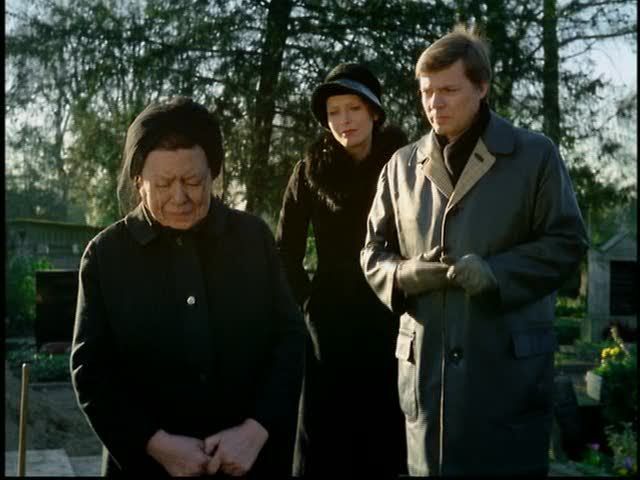Mother Kusters’ Trip to
Heaven (Rainer Werner Fassbinder, 1975)
Frau Kusters (Brigitte Mira) is preparing dinner late one seemingly ordinary
afternoon in her seemingly ordinary kitchen in Frankfurt, Germany. Mrs. Kusters
wants to add canned sausages to the stew, her annoying daughter-in-law thinks
otherwise. The point, we soon find out, is moot: Mr. Kusters has murdered the
personnel director at the soap factory where he works before committing
suicide.
It makes Mother Kusters’ the most post French New
Wave Godardian film made by Fassbinder. However, the German director gets
cynical with every movement or dogma he encounters in his film. There is a
pessimistic violence in Mother Kusters that is set by the sudden death of Mr.
Kusters.
The film also
feels more like an essay on politics and seems to translate Fassbinder’s loath for
the German nation. It is difficult to get his clear thoughts on the story
because of the ever change of focus and even the dual endings that are
completely opposed to one another. The second one, of the American version, feels
like a forced happy ending that makes us doubt of the widower’s truth. While
the first ending that is told with only captions is more tragic and shows that
there is no issue but to let things get where they are and how they will always
be.
It is an
interesting film in the career of Rainer
Werner Fassbinder, definitely not my favorite but another strong effort.
One thing I did not mentioned a lot in my other posts about Fassbinder’s films
is the cinematography by Michael
Ballhaus, which I enjoy a lot and I think that he is often overlooked for
the most mainstream names of the 1970’s. However, a long time collaborator to
Fassbinder, Ballhaus used to be able to make that era seems vibrant and his use
of colors is outstanding and I can understand why later in his career he worked
with Martin Scorsese, Francis Ford Coppola, and Mike Nicholls.
If the
political Jean-Luc Godard of Weekend and Tout Va Bien is your cup of tea and that you loved the BRD trilogy
by Fassbinder I would then highly recommend Mother
Kusters’ Trip to Heaven. Otherwise, it is a dense film that needs all your
attention and has a lot to say and might need more than one viewing.



No comments:
Post a Comment